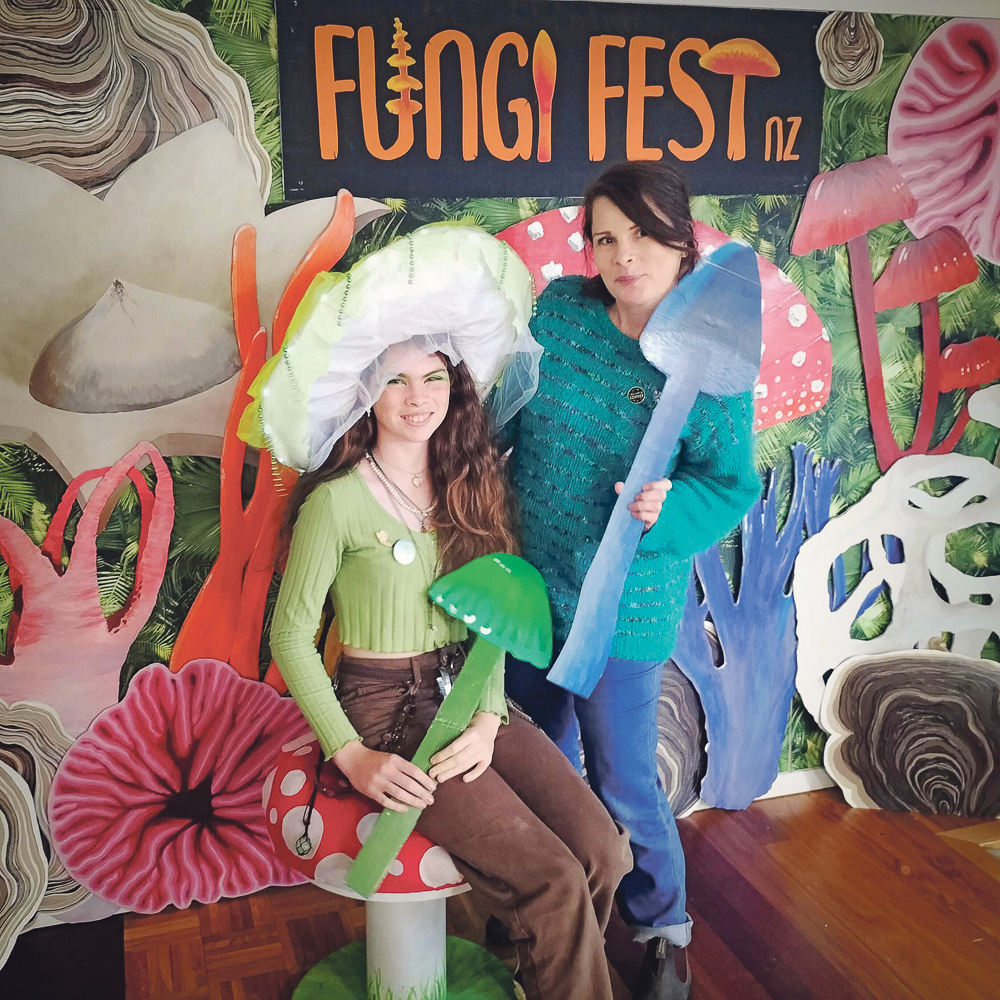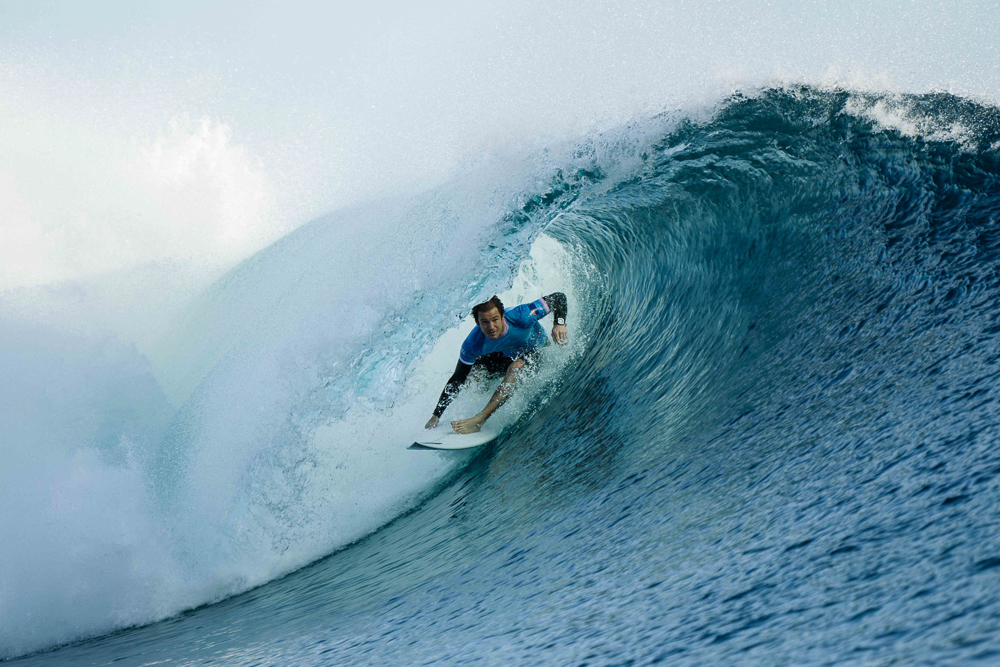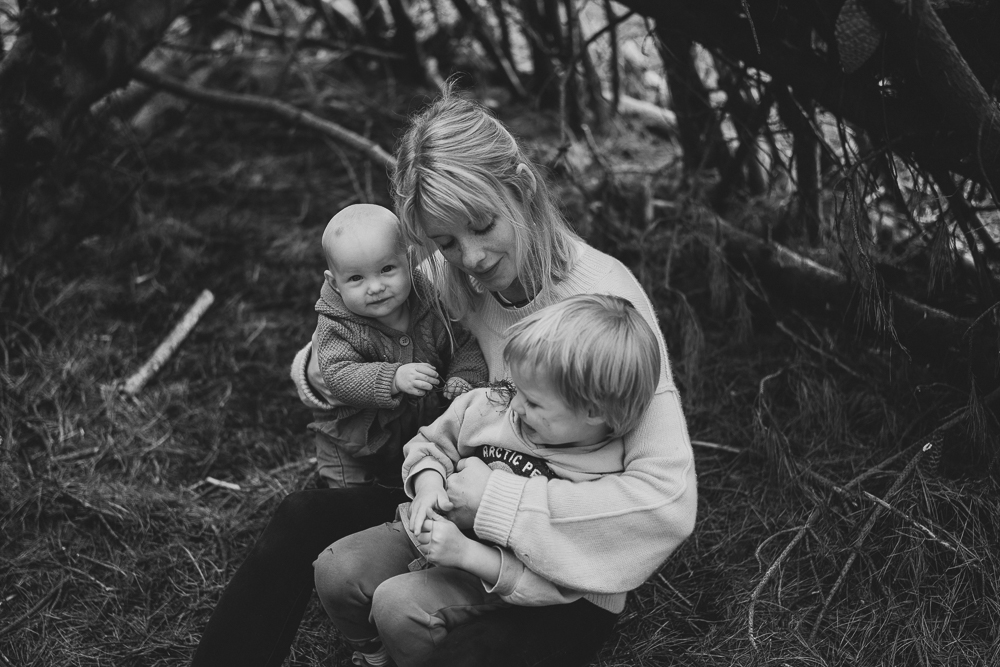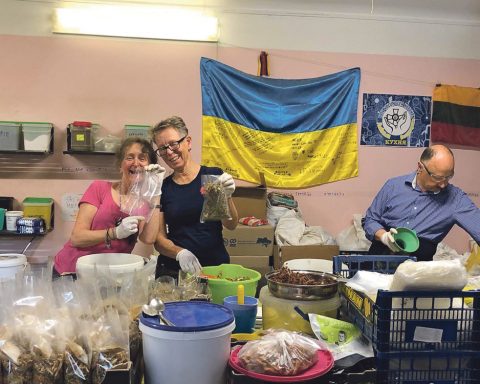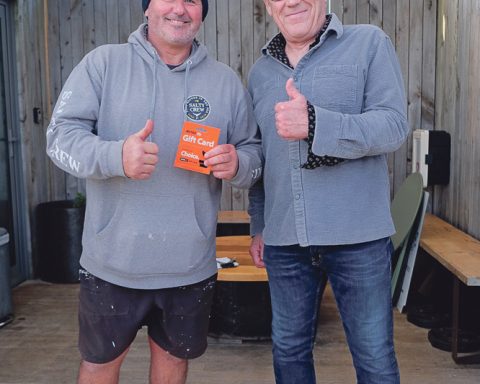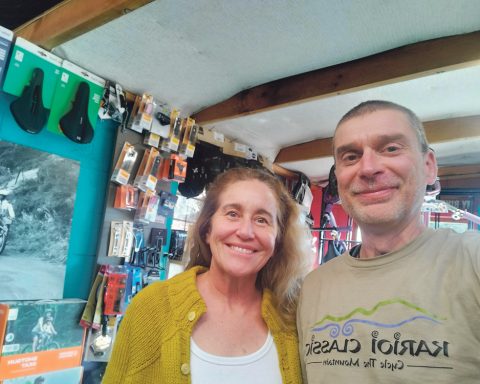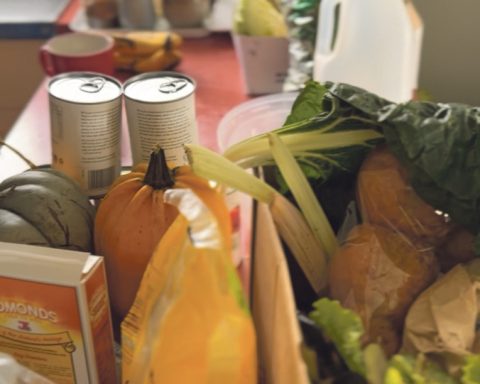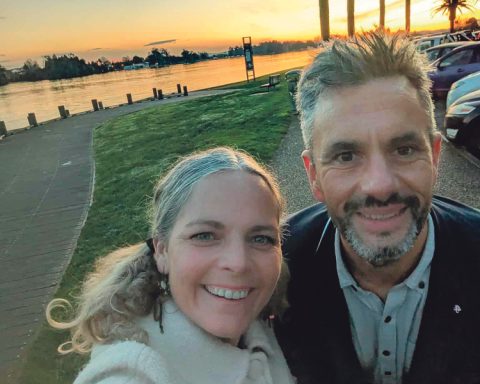J
asmine and daughter Stella share their journey and what resilience and community mean to them.
Jasmine: I am originally from Te Waipounamu. We moved to Whāingaroa in 2013 when Stella was 2 years old. Prior to moving here, I was already a keen KASM supporter and was aware of the strong community and environmental activism here. I wanted Stella to grow up with the same strong sense of community and freedom to explore that I had growing up.
Stella: I really like Raglan, our street, our community, and how close people are, the amazing nature, the bush and the ocean so nearby.
What are you involved in within the community/neighbourhood?
Jasmine: I have been with the Whāingaroa Environment Centre for the past 6.5 years, and Xtreme Zero Waste for the past year, running the Centre Hub in the Town Hall, projects and events such as Science Night, Tool Library, beach cleans, and Māui Dolphin Day. I also manage communications and marketing for the Environment Centre, supporting various other projects like the Growers Market, Repair Café, Timebank and more recently, Community Energy Whāingaroa. Separately, over the past decade, I have been involved in organising not-for-profit festivals which have a focus on art, connection, gifting and education. Stella has grown up in this environment, and it has helped shape both of us.
Stella: I am seriously into fungi and mycology. I am fascinated by toadstools and mushrooms and have been studying them. I discovered some Wax-gills near Bridal Veil Falls; there was a whole group looking like a carpet of confetti on the ground—red, yellow, purple and orange. We went to a Fungi Fest in Tauranga this month. I am also a passionate and skilled op shopper—a regular at Kahu’s Nest. Some of my friends ask me to help them shop second hand. I also like writing poetry.
What are you passionate about?
Jasmine: I’m very fond of and like collecting NZ-made vintage items like Crown Lynn and Don Furniture. I’m passionate about social issues and seeing diverse representation in government.
Stella: Bugs are diverse! I am really into bugs, animals and discovering things, watching nature, writing, oh and Mum and I watch the stars.
What springs to mind when you think of building community resilience?
Jasmine: That we as a community are not dependent on everything being brought to us. We support each other to be sustainable. We need to transition our economic well-being from being dependent on the extraction of new resources to keeping the resources we already have in circulation for as long as possible. We need to protect our natural resources. It’s a challenge but also an exciting opportunity for innovation.
Stella: Off-grid, living off the land. I’d like that.
What sort of things do you do to live more sustainably?
Jasmine: I try to embrace the concept of “under consumption.” We buy second hand as much as possible. I do a lot of research on items before I purchase. Our clothes are predominantly second hand and I buy local as much as possible. Stella’s lunch box is nearly always homemade baking, meals etc. We avoid cling wrap and single-serve packets. We try to buy tins and cans over plastic and glass. That can be hard for us most of the time being low income, but we try where we can. The production and consumption of household goods is responsible for about 60% of greenhouse gas emissions. The most powerful thing you can do for the planet is to consume less stuff, so we try to avoid buying non-essential stuff. I am far, far from perfect when it comes to living sustainably. None of us are. But it’s about making lots of small changes that add up. I failed with my vegetable garden this year, the kikuyu won, but I’ll get on top of it because it’s incredibly rewarding and a massive thrill growing your own food.
Stella: We op shop or buy second-hand furniture. It adds up over time. Our chickens eat our leftovers, we have a worm farm and compost which stops food waste going to landfill.
What do you think we already have in Whāingaroa, and what are some examples of how we are building resilience?
Jasmine: We already have some great food security work happening, like the Seed Bank, free seeds stand, Growers Market, and community gardens. Our communal efforts towards increasing landfill diversion are something we should be proud of. Community Energy Whāingaroa recently launched. How cool would it be to see our community off the main grid and self-sufficient one day! I’m a huge advocate for education and I learn so much at Science Night. The Repair Café has really taken off—45 items fixed this month!
What do you think the gaps are, or what could we do better?
Jasmine: We need waste-free grocery options! I’m really excited at the potential for a new refillery. We need more support and investment in exploring energy security and affordability, micro grids, sharing energy, and affordable and accessible power storage. We need to empower the next generation to be climate solutionists; let’s support our educators!
What are your thoughts on climate change and its impacts?
Jasmine: The climate crisis is man-made and its impact affects everyone, our economy and mostly our vulnerable communities. While climate change may have happened naturally in the past, it’s being unnaturally accelerated today because of our human activity. The science can’t be denied: we’re experiencing extreme weather, rising sea levels, and ecosystem disruptions. We know burning fossil fuels, deforestation, overfishing, water pollution, and air pollution cause climate change, but why are we doing those things? We consume too much energy—the root cause is overconsumption. We need to produce less stuff, focus on economic degrowth and culturally transition away from valuing consumerism. Capitalism is a system that is fundamentally at odds with our planet. It can’t survive unless we are speeding up the extraction of resources, processing them into stuff, buying stuff, throwing stuff away, and then starting that process all over again. As individuals, we are personally responsible for what happens in the supply chain. Who makes corporations profitable? We do by our consumer participation. We have got to stop thinking of the earth’s resources as our property to take as we like.
Are you doing anything to address this?
Jasmine: I actively vote for people and parties who uphold Te Tiriti o Waitangi. Te Tiriti “affirms particular rights and responsibilities for Māori as Māori to protect and preserve their lands, forests, waters and other treasures for future generations.” We can’t have climate justice without justice for Tangata Whenua. I vote for my daughter and her generation in the hopes that they have a thriving, long life. I am teaching my daughter to uphold Te Tiriti and make responsible, compassionate decisions.
Is there anything else you would like to share?
Jasmine: I have frequent conversations with both international tourists and visitors from other regions who consistently comment on how Raglan looks and feels more connected and how obvious it is to them that we passionately care about our environment. As our population grows, I think it’s important to maintain our tight-knit, strong, special community spirit. Next time you see the opportunity to participate in a community activity that resonates with you, don’t overthink it or put it off for another day! You’ll make wonderful new connections, learn new things and enrich your quality of life. That’s why you moved here, isn’t it?
Showcasing and sharing stories from people and organisations in our community who are doing awesome things to build resilience, connection and take action on climate change.
By Rachael Goddard
